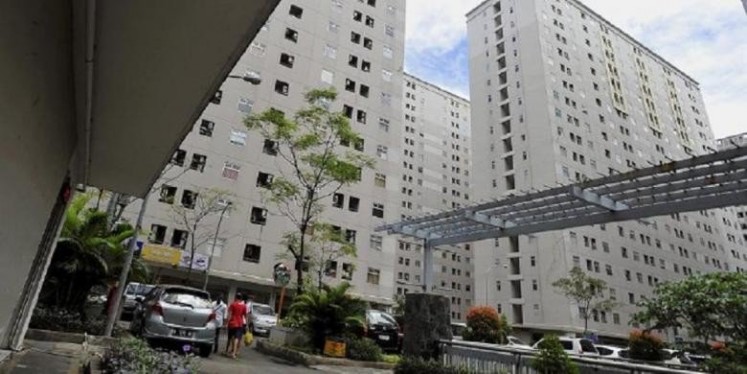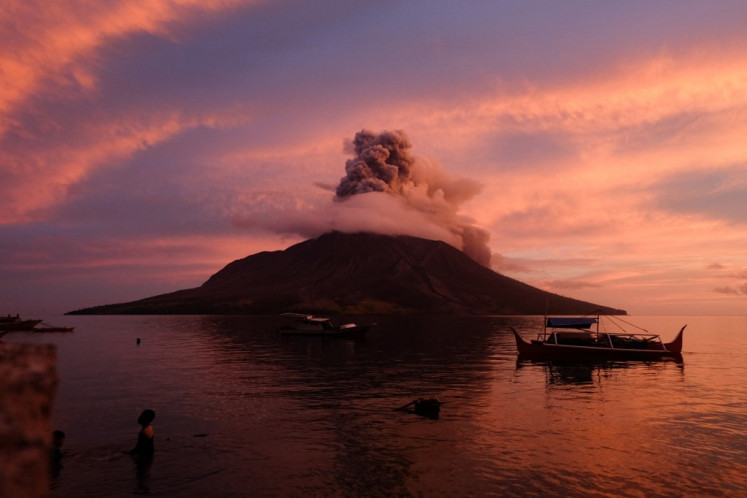LDC marks presence in local biofuel business
A newly established biodiesel plant in Lampung operated by a European agribusiness giant Louis Dreyfus Company (LDC) has secured the tender to provide 76,000 tons of biodiesel for state-owned oil and gas company Pertamina
Change Size

A
newly established biodiesel plant in Lampung operated by a European agribusiness giant Louis Dreyfus Company (LDC) has secured the tender to provide 76,000 tons of biodiesel for state-owned oil and gas company Pertamina.
The Lampung biodiesel plant, LDC’s fifth biodiesel plant in the world and the first established in Asia, has an annual production capacity of 420,000 tons of palm oil methyl ester, commonly known as palm oil diesel, and 50,000 tons of glycerin. The facility, launched for operation earlier this month, is located adjacent to LDC Indonesia’s existing palm oil refinery, which has been in operation since 2014.
The 76,000 metric tons of biodiesel ordered by Pertamina for May to November makes up 5 percent of approximately 1.5 metric tons the company has set to procure within the same period.
LDC Indonesia CEO Imran Nasrullah said that the establishment of the US$30 million plant was part of the company’s commitment to support the government’s drive to develop and promote renewable energy usage.
“Our plant supports Indonesia’s goal of [energy] self-sufficiency through a viable, sustainable supply of renewable fuel. We want to use our sustainable feedstock for the government’s long term vision,” he told The Jakarta Post in an interview on Wednesday.
The government has issued a mandatory ruling for public diesel to be made up of 20 percent palm oil-biodiesel, known as the B20 program, in order to encourage the use of non-fossil fuels.
Under the program, biofuel — mostly made out of palm oil, is expected to replace diesel fuel as part of the effort to reduce the country’s dependency on petroleum-based fuel and its carbon emissions. The program also aims to jack up the commodity’s price, which has been under pressure amid a global economic slowdown.
The mandatory diesel/biofuel blend increased from 10 percent in 2013 to 15 percent in 2015 and is expected to reach 20 percent by this year.
Nasrullah added that the company’s plant would also supply palm oil diesel to private buyers, as they expected higher demand due to the government’s ambitious policy.
Weaning off petroleum-based fuels seems even more urgent now as national demand is expected to reach 1.6 million barrels of oil per day (bopd) amid low oil prices. Benchmark West Texas Intermediate (WTI) crude oil prices stood at $44.91 on Wednesday evening according to Bloomberg while fellow benchmark Brent Crude stood at $46.72.
Data from the Indonesian Oil Palm Estate Fund (BPDP) shows that the implementation of B20 would reduce emissions equivalent to 9 to 18 million tons of carbon dioxide per year.
However, BPDP recently reported that the realization of subsidized diesel fuel mixed with 20 percent bio-content only reached 404,000 kiloliters during the first two months of the year, equal to approximately 80 percent of the more than 500,000-kiloliter target set for that period.
Despite the failure, the BPDP still maintains a target to see the country having 3 million kiloliters of the diesel/biofuel blend distributed by the year’s end.
The low oil prices, meanwhile, has also indirectly affected LDC’s short term plans for the Lampung plant as they had originally designed it to be an export plant, Nasrullah said.
Although exporting their products does not seem economically viable right now, Nasrullah said that the company saw the European, African and Asian regions as potential attractive developing markets, especially in the latter two regions.
The company, he added, was also considering to establish another biodiesel plant in Indonesia in an area close to palm oil rich regions as an effort to intensify its presence in the domestic market.
“We’re never going to say no to growth but the baby [the Lampung biodiesel plant] is just getting ready. [However], LDC is committed to long term growth, so we’ll look at those opportunities,” he said.
Apart from the Lampung palm oil refinery, LDC Indonesia also has another refinery in Balikpapan, East Kalimantan.









